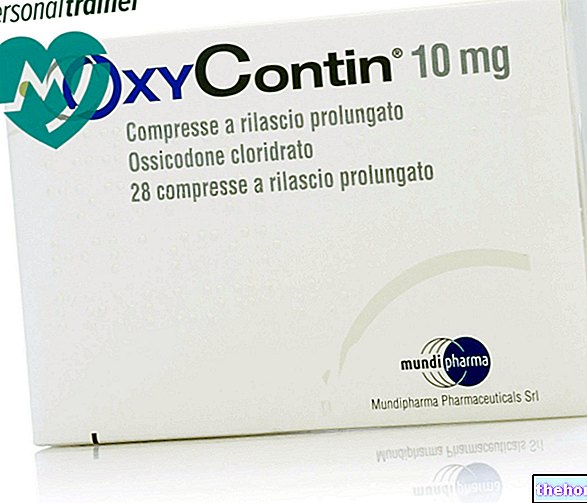Active ingredients: Bicalutamide
CASODEX 50 mg film-coated tablets
Casodex package inserts are available for pack sizes:- CASODEX 50 mg film-coated tablets
- CASODEX 150 mg film-coated tablets
Indications Why is Casodex used? What is it for?
CASODEX contains bicalutamide, which belongs to the class of antiandrogens.
CASODEX 50 mg is indicated for the treatment of prostate cancer (a gland that produces seminal fluid in men), and works by reducing the amount of testosterone (a hormone) produced by your body.
CASODEX will be prescribed to you together with other medicines to treat prostate cancer or at the same time as the removal of the testicles (surgical castration).
Talk to your doctor if you don't feel better or if you feel worse.
Contraindications When Casodex should not be used
Do not take CASODEX
- if you are allergic to bicalutamide or any of the other ingredients of this medicine (listed in section 6).
- if you are a woman or a child (see pregnancy and breastfeeding section).
- if you are taking terfenadine or astemizole, medicines prescribed to treat allergies (see section Other medicines and Casodex).
- if you are taking cisapride, a medicine prescribed to treat stomach acid reflux (see section Other medicines and Casodex).
Precautions for use What you need to know before taking Casodex
Talk to your doctor before taking CASODEX.
Talk to your doctor if you have any of the following conditions:
- any heart or blood vessel disorders, including heart rhythm problems (arrhythmias), or if you are being treated with medicines to treat these disorders. The risk of heart rhythm problems may increase with the use of CASODEX;
- if you suffer from liver disease, even severe (moderate to severe liver failure). Your doctor may ask you to have frequent checkups;
- if your condition worsens and your blood tests show an increase in PSA (prostate specific antigen). In this case, the doctor may stop treatment with CASODEX 50 mg.
You must take CASODEX 50 mg as prescribed and do not stop the treatment unless your doctor decides to do so.
In the event of hospitalization, please inform the medical staff of your current treatment with CASODEX 50 mg.
Your doctor will monitor your blood sugar levels as the administration of drugs such as CASODEX 50 mg (LHRH agonists) may lead to a reduction in your ability to metabolize sugar. You may therefore develop diabetes or an increase in blood sugar levels if you already have diabetes (persistent instability in the blood sugar level, with the transition from high sugar levels to low blood sugar levels).
Children
The use of CASODEX 50 mg is contraindicated in children as safety and efficacy have not been established.
Interactions Which drugs or foods may change the effect of Casodex
Tell your doctor or pharmacist if you are taking, have recently taken or might take any other medicines.
CASODEX may interfere with some medicines used to treat heart rhythm problems (e.g. quinidine, disopyramide, amiodarone, sotalol, dofetilide, ibutilide) or may increase the risk of heart rhythm problems when used with some other medicines (e.g. methadone (used for pain relief and drug addiction detox programs), moxifloxacin (an antibiotic), antipsychotics (used for severe mental illness).
In particular, tell your doctor if you are taking any of the following medicines:
- anticoagulants, to make the blood more fluid
- terfenadine or astemizole, to treat allergies
- cisapride, to treat the return of acid from the stomach
- cyclosporine, to lower the response of the immune system (the body's defense system)
- calcium channel blockers, to treat high blood pressure or certain heart diseases
- cimeditine, to treat stomach ulcers
- ketokonazole, to treat infections caused by fungi
- midazolam, a tranquilizer medicine.
Warnings It is important to know that:
Pregnancy and breastfeeding
Ask your doctor or pharmacist for advice before taking any medicine.
CASODEX 50 mg is contraindicated in women, including pregnant or breastfeeding women.
Driving and using machines
CASODEX 50 mg does not affect the ability to drive or use machines. However, should you experience sleepiness, use caution when driving.
CASODEX contains lactose
If you have been told by your doctor that you have "intolerance to some sugars, contact your doctor before taking this medicinal product
Dosage and method of use How to use Casodex: Dosage
Always take this medicine exactly as your doctor or pharmacist has told you.
If in doubt, consult your doctor or pharmacist. The recommended dose is one CASODEX 50 mg tablet per day.
Start taking CASODEX together with other medicines that have been prescribed for you to treat cancer or to remove the testicles (surgical castration).
No dosage adjustment is necessary in patients with mild renal and / or hepatic insufficiency.
If you have moderate or severe liver failure your doctor may decide to stop the treatment.
Improvement of the state of health should not lead to the interruption of treatment, unless decided by the doctor.
Overdose What to do if you have taken too much Casodex
If you take more CASODEX than you should
In case of accidental ingestion / intake of an overdose of CASODEX, notify your doctor immediately or go to the nearest hospital.
If you forget to take CASODEX
Do not take a double dose to make up for a forgotten tablet.
If you stop taking CASODEX
If you have any further questions on the use of this medicine, ask your doctor or pharmacist
Side Effects What are the side effects of Casodex
Like all medicines, this medicine can cause side effects, although not everybody gets them.
In this section, the undesirable effects reported following the use of CASODEX 50 mg and another medicine to treat cancer are defined by frequency:
Very common (may affect more than 1 in 10 patients)
- reduction of hemoglobin, a protein that carries oxygen in the blood (anemia)
- dizziness
- hot flashes
- belly pain
- constipation nausea
- presence of blood in the urine (haematuria)
- breast enlargement (gynecomastia). Removal of the testicles can reduce adverse effects related to the breasts.
- breast pain
- weakness
- swelling (edema)
Common (may affect up to 1 in 10 patients)
- decreased appetite
- decreased sexual desire
- depression
- drowsiness
- heart disease (heart failure). It mostly occurs when the drug is taken together with other similar drugs.
- myocardial infarction (when no more blood reaches the heart)
- difficulty digesting (dyspepsia)
- emission of gas from the intestine (flatulence)
- decreased liver function (liver failure). Changes in the liver are usually transient.
- yellowing of the skin and eyes (jaundice)
- increase in liver enzyme values
- hair loss
- increased hair and hair
- rashes on the skin
- dryness of the skin
- itch
- erectile dysfunction
- chest pain
- weight gain
Uncommon (may affect up to 1 in 100 patients)
- allergy
- swelling of the face and lips
- urticaria
- severe lung disease which can lead to death (interstitial pneumonia)
Rare (may affect up to 1 in 1,000 patients)
- liver disease (severe liver failure which can be fatal). In this case, your doctor will ask you to stop treatment with CASODEX.
- increased sensitivity of the skin to sunlight.
Not known (frequency cannot be estimated from the available data)
- changes in the ECG pattern (QT prolongation).
The possible side effects listed above should not cause alarm as they may not even occur.
Reporting of side effects
If you get any side effects, talk to your doctor or pharmacist. This includes any possible side effects not listed in this leaflet. You can also report side effects directly via the national reporting system at "https://www.aifa.gov.it/content/segnalazioni-reazioni-avverse". By reporting side effects you can help provide more information on the safety of this medicine.
Expiry and Retention
Do not store above 30 ° C.
Keep this medicine out of the sight and reach of children.
Do not use this medicine after the expiry date which is stated on the carton after EXP. The expiry date refers to the last day of that month.
Do not throw any medicines via wastewater or household waste. Ask your pharmacist how to throw away medicines you no longer use. This will help protect the environment.
What CASODEX contains
- The active ingredient is bicalutamide 50 mg.
- The other ingredients are lactose monohydrate (see section CASODEX contains lactose), carboxymethyl starch sodium A, povidone, magnesium stearate, hypromellose, macrogol 300, titanium dioxide.
Description of what CASODEX looks like and contents of the pack
CASODEX 50 mg is a white film-coated tablet.
CASODEX 50 mg is available in packs of 28 film-coated tablets.
Source Package Leaflet: AIFA (Italian Medicines Agency). Content published in January 2016. The information present may not be up-to-date.
To have access to the most up-to-date version, it is advisable to access the AIFA (Italian Medicines Agency) website. Disclaimer and useful information.
01.0 NAME OF THE MEDICINAL PRODUCT
CASODEX 50 MG TABLETS COATED WITH FILM
02.0 QUALITATIVE AND QUANTITATIVE COMPOSITION
Each tablet contains:
Active ingredient: bicalutamide 50 mg.
Excipients: Lactose monohydrate.
For the full list of excipients see section 6.1.
03.0 PHARMACEUTICAL FORM
Film-coated tablets.
04.0 CLINICAL INFORMATION
04.1 Therapeutic indications
Treatment of advanced prostate cancer in association with LHRH analogues or surgical castration.
04.2 Posology and method of administration
Male adults, including the elderly
One 50 mg tablet once a day. Treatment with Casodex 50 mg should be initiated at the same time as treatment with LHRH analogues or with surgical castration.
Patients with renal insufficiency: No dosage adjustment is necessary.
Patients suffering from hepatic insufficiency: No dosage adjustment is necessary in patients with mild hepatic impairment. Particular caution should be exercised in patients with moderate or severe hepatic impairment (see 4.4 Special Warnings and Precautions for Use).
04.3 Contraindications
Casodex 50 mg is contraindicated in women and children (see 4.6 Pregnancy and Lactation).
Casodex 50 mg must not be administered to patients who have shown hypersensitivity reactions to the active substance or to any of the excipients of the product.
Concomitant administration of terfenadine, astemizole and cisapride with bicalutamide is contraindicated (see 4.5 Interactions with other drugs and other forms of interaction).
04.4 Special warnings and appropriate precautions for use
Casodex 50 mg is extensively metabolised by the liver. Clinical data indicate that its elimination may be slowed in subjects with severe hepatic insufficiency; and this could lead to increased drug accumulation.
Therefore, bicalutamide should be used with caution in patients with moderate to severe hepatic impairment.
In consideration of the possibility of changes in liver function, periodic checks are advisable. Most changes are expected to occur within the first 6 months of bicalutamide therapy.
Rarely, severe hepatic abnormalities and hepatic failure have been observed with Casodex 50 mg and fatal outcomes have been reported (see 4.8 Undesirable Effects); in such cases, Casodex 50 mg therapy should be discontinued.
In patients presenting with objective disease progression along with elevated PSA levels, discontinuation of bicalutamide therapy should be considered.
Decreased glucose tolerance has been observed in men being treated with LHRH agonists. This may manifest as diabetes or loss of glycemic control in patients with pre-existing diabetes mellitus. Monitoring should therefore be considered. blood glucose levels in patients receiving Casodex in combination with LHRH analogues.
Bicalutamide is an inhibitor of cytochrome P450 (CYP 3A4), therefore caution is recommended when administered concomitantly with drugs metabolised predominantly by CYP 3A4 (see 4.3 Contraindications and 4.5 Interactions with other drugs and other forms of interaction).
Patients with rare hereditary problems of galactose intolerance, the Lapp-lactase deficiency or glucose-galactose malabsorption should not take this drug.
Androgen deprivation therapy can prolong the QT interval.
In patients with a history of QT interval prolongation or with risk factors for QT interval prolongation and in patients receiving concomitant medications that can prolong the QT interval (see section 4.5), prior to initiating treatment with Casodex 50 mg Physicians should evaluate the benefit-risk ratio including the possibility of Torsade de Pointes.
04.5 Interactions with other medicinal products and other forms of interaction
There is no evidence of any pharmacodynamic or pharmacokinetic interaction between Casodex 50 mg and LHRH analogues.
In in vitro studies, the R-enantiomer of bicalutamide has been shown to be an inhibitor of CYP 3A4 and have minor inhibitory effects on CYP 2C9, 2C19 and 2D6 activity.
Although clinical studies using antipyrine as a marker of cytochrome P450 (CYP) activity did not show any evidence of potential interaction with Casodex, the mean midazolam exposure (AUC) increased by up to 80% after concomitant administration. of bicalutamide for 28 days. For drugs with a narrow therapeutic index, such an increase could be relevant. Consequently, concomitant use of terfenadine, astemizole and cisapride is contraindicated (see 4.3 Contraindications) and caution is required when administering bicalutamide concomitantly with compounds such as cyclosporine and calcium channel blockers. dosing, particularly in cases of enhanced or adverse effects For cyclosporine, it is recommended that plasma concentrations and clinical conditions be closely monitored after initiation or discontinuation of Casodex therapy.
When bicalutamide is prescribed with other drugs that can inhibit drug oxidation, eg cimetidine and ketoconazole, in theory, this could result in increased plasma concentrations of bicalutamide which could theoretically lead to increased side effects.
Casodex 50 mg has been shown in in vitro studies to shift the coumarin anticoagulant warfarin from protein binding. Therefore, when treatment with Casodex 50 mg is initiated in patients already taking coumarin anticoagulants, careful monitoring of the prothrombin time is recommended.
Since androgen deprivation treatment may prolong the QT interval, concomitant use of Casodex 50 mg with medicinal products known to prolong the QT interval or with medicinal products capable of inducing Torsade de Pointes such as class antiarrhythmic medicinal products should be carefully considered. IA (e.g. quinidine, disopyramide) or class III (e.g. amiodarone, sotalol, dofetilide, ibutilide), methadone, moxifloxacin, antipsychotics, etc. (see section 4.4).
04.6 Pregnancy and lactation
Casodex 50 mg is contraindicated in women and should not be administered during pregnancy and lactation.
04.7 Effects on ability to drive and use machines
Casodex 50 mg by itself is unlikely to affect the ability to drive or use machines. However, it should be noted that occasionally somnolence may occur. Patients experiencing this effect should exercise caution.
04.8 Undesirable effects
In this section, undesirable effects are defined as follows: very common (≥ 1/10), common (≥ 1/100 a
Table 1 Frequency of adverse reactions
a Liver changes are rarely severe and are frequently transient in nature; they resolve or improve with continued therapy or its discontinuation.
b Listed as an adverse drug reaction following review of post-marketing data. The frequency was determined based on the incidence of reported cases of hepatic failure in patients receiving Casodex 150 mg in the open-label arm of the EPC studies.
c Can be reduced by concomitant castration.
d Observed in a pharmaco-epidemiological study of LHRH agonists and antiandrogens used in the treatment of prostate cancer. The risk appeared to be increased when Casodex 50 mg was used in combination with LHRH agonists but no increased risk was evident when Casodex 150 mg was used as monotherapy in the treatment of prostate cancer.
and Listed as an adverse drug reaction following review of post-marketing data. The frequency was determined based on the incidence of cases of interstitial pneumonia reported in patients in the randomized treatment period in the EPC studies with Casodex 150 mg.
04.9 Overdose
There is no experience of overdose in humans. There is no specific antidote and treatment should be symptomatic. Dialysis may not be helpful as Casodex 50 mg is highly bound to plasma proteins and does not recover unchanged in the urine. General supportive measures are indicated, including frequent monitoring of vital signs.
05.0 PHARMACOLOGICAL PROPERTIES
05.1 Pharmacodynamic properties
Pharmacotherapeutic group: antiandrogens.
ATC code: L02BB03.
Casodex 50 mg is a non-steroidal antiandrogen, devoid of other endocrine activity. It binds to androgen receptors without activating their gene expression, and in this way inhibits the androgenic stimulus. The regression of prostate tumors results from this inhibition. Clinically in some patients after the discontinuation of Casodex, the withdrawal syndrome can be observed. "antiandrogen.
Casodex 50 mg is a racemic whose antiandrogenic activity is almost exclusively due to the (R) -enantiomer.
05.2 Pharmacokinetic properties
Casodex 50 mg is well absorbed following oral administration. There is no evidence of any clinically relevant effect of food on its bioavailability.
The (S) -enantiomer is rapidly cleared with respect to the (R) -enantiomer; the latter has a plasma elimination half-life of approximately 1 week. During the daily administration of Casodex 50 mg, the (R) -enantiomer accumulates approximately 10-fold in plasma as a consequence of its long half-life.
During daily administration of 50 mg doses of Casodex, equilibrium plasma concentrations of the (R) -enantiomer of approximately 9 mcg / ml are observed. it represents 99% of the total circulating enantiomers.
Pharmacokinetic parameters of the (R) -enantiomer are not affected by age, renal insufficiency or mild or moderate hepatic insufficiency. In subjects with severe hepatic insufficiency it has been found that the (R) -enantiomer is eliminated more slowly from the plasma.
Casodex 50 mg is highly bound to plasma proteins (racemate 96%, (R) -bicalutamide> 99%) and is almost completely metabolised (by oxidation and glucuronidation); its metabolites are eliminated by the kidney and biliary approximately to the same extent.
In a clinical study, the mean concentration of R-bicalutamide in semen of men treated with Casodex 150 mg was 4.9 mcg / ml. The amount of bicalutamide potentially transmitted to a female partner during intercourse is low and is approximately 0.3 mcg / kg. This amount is below that capable of inducing changes in the offspring of laboratory animals.
05.3 Preclinical safety data
Casodex 50 mg is a potent antiandrogen and is an inducer of mixed function oxidase enzyme in animals. In the animal, changes in target organs, including tumor induction, are related to this activity.
Enzyme induction was not observed in humans. None of the preclinical test results are considered to be of relevance in the treatment of patients with advanced stage prostate cancer.
06.0 PHARMACEUTICAL INFORMATION
06.1 Excipients
Lactose monohydrate, carboxymethyl starch sodium A, povidone, magnesium stearate, hypromellose, macrogol 300, titanium dioxide
06.2 Incompatibility
None known.
06.3 Period of validity
5 years.
06.4 Special precautions for storage
Store at a temperature not exceeding 30 ° C.
06.5 Nature of the immediate packaging and contents of the package
PVC / Aluminum blister.
Casodex 50 mg film-coated tablets - 28 tablets
06.6 Instructions for use and handling
No special instructions
07.0 MARKETING AUTHORIZATION HOLDER
AstraZeneca S.p.A.
Volta Palace
Via F. Sforza
Basiglio (MI)
08.0 MARKETING AUTHORIZATION NUMBER
Casodex 50 mg film-coated tablets - 28 tablets - A.I.C. n. 031113018
09.0 DATE OF FIRST AUTHORIZATION OR RENEWAL OF THE AUTHORIZATION
AIC date: May 1996 / Renewal May 2011
10.0 DATE OF REVISION OF THE TEXT
March 2015




























